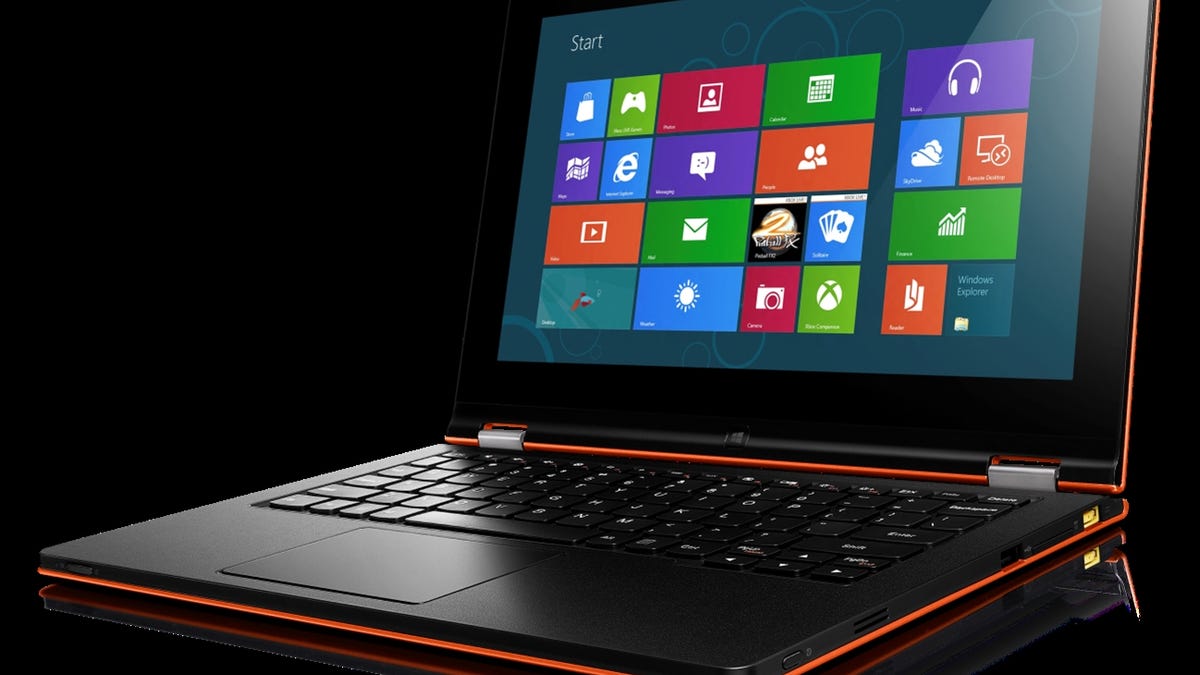Windows 8 failing to stem post-PC tide, analyst says
One of the top Wall Street analysts following Microsoft notes in a research report that Windows 8 is not catching on with consumers, calling the operating system's attempt to bridge tablet and PC functions "awkward."

Nomura Securities analyst Rick Sherlund, one of the longest tenured and most respected Microsoft watchers on Wall Street, believes Windows 8 has failed to slow the post-PC era march, where consumers opt for smartphones and tablets ahead of personal computers.
"The tide continues to go out on PC sales as consumers and emerging market users prefer tablets and smartphones to Windows based PCs," Sherlund wrote in a research note sent to investors this morning. "Windows 8 has failed to ebb the receding tide."
Microsoft investors had hoped that Windows 8, which launched last October, would give PC makers an operating system to address the shift toward mobile gadgets. It's the first version of Windows that has touch capability as its core focus. That's led Microsoft and many of its hardware partners to develop touch-screen PCs, including hybrid devices that can work as both a tablet and a laptop.
But Sherlund notes that consumers don't seem all that interested in Windows 8 tablets.
"Windows 8 is awkward in that it tries to address the intuitive ease of use of a tablet with the compatibility and features of a PC," Sherlund wrote. "For a consumer, they see no need for all this when a low priced tablet or smartphone is sufficient and they can easily learn a few alternatives to Office for the consumer needs."
It's not just consumers who aren't as keen on Windows 8 as Microsoft investors would hope.
"To date, the enterprise market has not shown a lot of interest, a troubling thought for investors and the stock," Sherlund wrote.
But he wrote that this could well change, even if those business users aren't all that interested in the tablet functionality. Sherlund believes businesses will increasingly come to like declining device prices, longer battery life, and the growing market of Windows 8 applications. What's more, over time, companies will be able to run pilot projects with Windows 8, giving them more confidence in using it. And the latest version of the Office suite of productivity applications will help drive Windows 8 sales to business users as well.
"There is room for skepticism after the sluggish start so far with Windows 8, but there is also reason for optimism about the second half of calendar 2013 when several improvements converge," Sherlund wrote.
The more immediate impact, though, is that Windows 8 sales aren't going to be as strong as Sherlund initially projected. The analyst has trimmed his expectations for the fiscal year that ends June 30, believing that revenue will climb 8 percent, to $79.6 billion, instead of his earlier forecast of a 9 percent jump, to $80 billion. He now expects operating income to grow 3 percent, to $28.9 billion, instead of 4 percent, to $29.2 billion.
"We see little near-term good news, but with an expectation for better traction later this year," Sherlund wrote.

